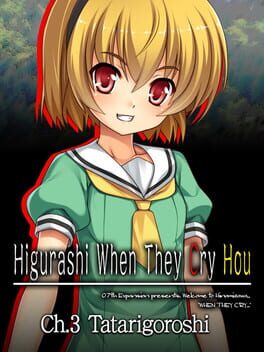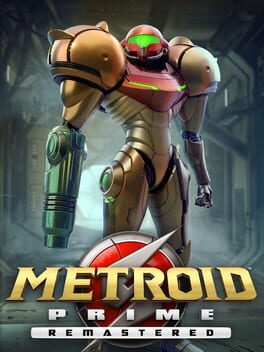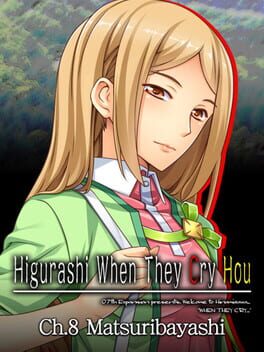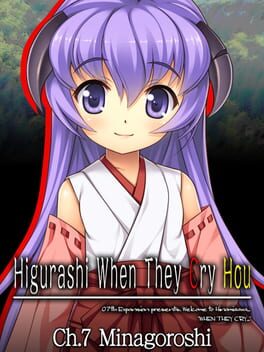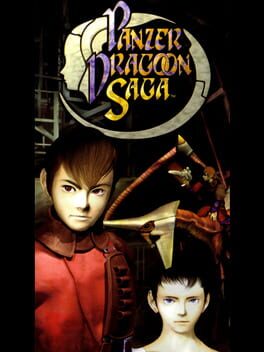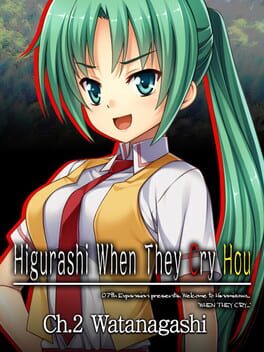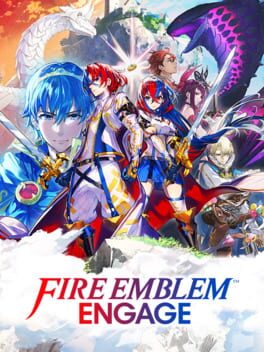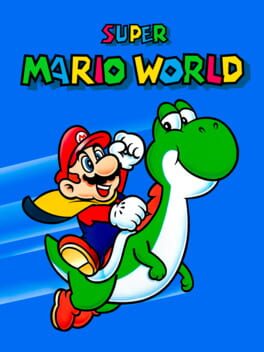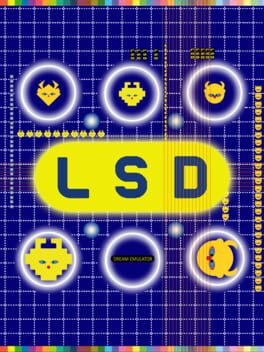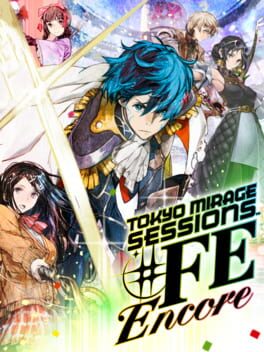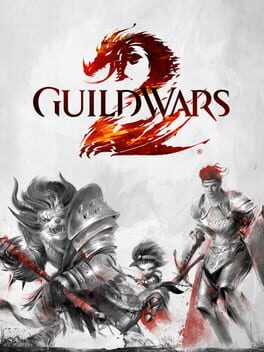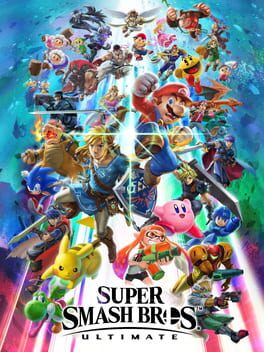marukoto
This review contains spoilers
Bleakest of all so far — and while it starts out saying it's the shortest, it's so far also the longest one, too. It even has credits and everything — I imagine that Higurashi initially ended here, now that it's playing all the mystery cards at once.
Ch 3 opens with an overwhelming sense of "mono no aware"; even as the slice of life days happen, Keiichi knows those days are numbered and will one day just disappear. He starts to act with increased urgency to preserve those days. He even recognises Oishi from the onset as a herald of those days ending.
It's almost like the stories are connected ...
This story from the onset is trying to shake up your assumptions from the previous chapters. Events coexist with other events; the chapters are interrelated; and other "continuities" bleed into each other here. Or do they?
Tatarigoroshi actually perfects the blend here from the previous chapters. The slice of life doesn't suddenly shatter into the mystery; it gradually gives way, erodes off. Keiichi seems so easily tilted that it seems more like he has inexplicable psychological bruises ... in this chapter I started to think that perhaps Keiichi isn't really real; perhaps he's someone else stuck in hell, since the pleasant daydreams of life always inexplicably go sour...
There's so many intensely memorable moments here. The longest day and the longest night feel long as you're trapped with Keiichi slowly planning out and executing a murder, and it's done perfectly. Having the cops appear from the shadows to find a corpse that isn't there, and then recede just as easily. Satoko being slow boiled, stuck outside a hospital in a towel, staring at you in disbelief, almost herself...
Ch 3 opens with an overwhelming sense of "mono no aware"; even as the slice of life days happen, Keiichi knows those days are numbered and will one day just disappear. He starts to act with increased urgency to preserve those days. He even recognises Oishi from the onset as a herald of those days ending.
It's almost like the stories are connected ...
This story from the onset is trying to shake up your assumptions from the previous chapters. Events coexist with other events; the chapters are interrelated; and other "continuities" bleed into each other here. Or do they?
Tatarigoroshi actually perfects the blend here from the previous chapters. The slice of life doesn't suddenly shatter into the mystery; it gradually gives way, erodes off. Keiichi seems so easily tilted that it seems more like he has inexplicable psychological bruises ... in this chapter I started to think that perhaps Keiichi isn't really real; perhaps he's someone else stuck in hell, since the pleasant daydreams of life always inexplicably go sour...
There's so many intensely memorable moments here. The longest day and the longest night feel long as you're trapped with Keiichi slowly planning out and executing a murder, and it's done perfectly. Having the cops appear from the shadows to find a corpse that isn't there, and then recede just as easily. Satoko being slow boiled, stuck outside a hospital in a towel, staring at you in disbelief, almost herself...
This review contains spoilers
Breath of the Wild was the first Zelda game I liked. I tried a lot of them as I grew up: the original NES game, Ocarina of Time, a bit of Majora's Mask, a bit of The Wind Waker; inadvertently halfway through I would just get bored and stop playing. Ocarina of Time in particular ran like dirt and was just clunky to play. The story never captivated me. I was a Metroid kid, I liked wandering planets alone and being sad.
Breath of the Wild was different; and a lot of Zelda fans basically pointed this out as a detriment. It was good but it was missing a lot of what made Zelda Zelda in favour of a really tight open world loop that prioritised micro-quests and exploration. (Guild Wars 2's story also does this; you can get to level 80 and the end game by just walking the map and running into stuff.)
After loving Breath of the Wild I pre-ordered this game and was surprised. It wasn't a darker BotW. It was BotW, but again, with more layers of microtasks, a ton of bigger quests, and finally, with a lot more Zelda trademarks in it.
I wanted them to get weird with it, I wanted them to make Majora's Mask, but they played it overwhelmingly safe. The story beats are the exact same as the first game; we even have to send Zelda back in time so as to keep the distance between her and Link present. (Perhaps they were afraid of her following you around like Alyx Vance, or something, and losing her impact. She has to feel special. She has to be the thing you must protect at all costs.)
You have to go to four places, they have problems, you solve the problems, do a dungeon, collect the people, kill the bad guy, go home. There are shrines again, but more this time. There are Korok seeds again, but more this time. There is a whole building mechanic, and a guy whose signposts keep falling over, and major quests, side adventures, minor quests, and things-so-small-they-aren't-even-quests. Often you act like a child with ADHD just constantly encountering tiny things to do and getting distracted by other tiny things you want to do.
It is Breath of the Wild, but a bit refined. It is Breath of the Wild, but more. It is Breath of the Wild, with more callbacks to the previous games, and with more Zelda-style quests.
Unfortunately, what I found was that there was so much, I was just sort of overwhelmed and bogged down by it. I didn't want to do all this stuff. TotK seemed to want me to marry it, spend 120-200 hours on it, really get lost in it. But I played this story already, down to the emotional beats, and I knew these tricks, and I kind of didn't even like building cars and stuff, which is what everything is designed around.
Sometime around 50 hours I started to get tired of walking around for an hour to do one tiny thing that made me marginally more prepared to beat the game, and started using guides to speed up the process. I started to wonder: who the hell were the characters in Breath of the Wild? I couldn't remember them at all. What did I love so much?
Why does TotK run at like 22 fps, to the point where I have my TV smoothing on, and why is Digital Foundry so specifically forgiving here?
I think they knew that it was better to sell a game that iterated on a winning formula than to take a second detour when the first game was already a detour. They found a niche, and they decided to do it right this time. And they've been rewarded for it. Everyone loves it. I am happy everyone loves it. I am happy I am done with it; and I wonder what the game was like in a world where they were happy to just get weird.
Breath of the Wild was different; and a lot of Zelda fans basically pointed this out as a detriment. It was good but it was missing a lot of what made Zelda Zelda in favour of a really tight open world loop that prioritised micro-quests and exploration. (Guild Wars 2's story also does this; you can get to level 80 and the end game by just walking the map and running into stuff.)
After loving Breath of the Wild I pre-ordered this game and was surprised. It wasn't a darker BotW. It was BotW, but again, with more layers of microtasks, a ton of bigger quests, and finally, with a lot more Zelda trademarks in it.
I wanted them to get weird with it, I wanted them to make Majora's Mask, but they played it overwhelmingly safe. The story beats are the exact same as the first game; we even have to send Zelda back in time so as to keep the distance between her and Link present. (Perhaps they were afraid of her following you around like Alyx Vance, or something, and losing her impact. She has to feel special. She has to be the thing you must protect at all costs.)
You have to go to four places, they have problems, you solve the problems, do a dungeon, collect the people, kill the bad guy, go home. There are shrines again, but more this time. There are Korok seeds again, but more this time. There is a whole building mechanic, and a guy whose signposts keep falling over, and major quests, side adventures, minor quests, and things-so-small-they-aren't-even-quests. Often you act like a child with ADHD just constantly encountering tiny things to do and getting distracted by other tiny things you want to do.
It is Breath of the Wild, but a bit refined. It is Breath of the Wild, but more. It is Breath of the Wild, with more callbacks to the previous games, and with more Zelda-style quests.
Unfortunately, what I found was that there was so much, I was just sort of overwhelmed and bogged down by it. I didn't want to do all this stuff. TotK seemed to want me to marry it, spend 120-200 hours on it, really get lost in it. But I played this story already, down to the emotional beats, and I knew these tricks, and I kind of didn't even like building cars and stuff, which is what everything is designed around.
Sometime around 50 hours I started to get tired of walking around for an hour to do one tiny thing that made me marginally more prepared to beat the game, and started using guides to speed up the process. I started to wonder: who the hell were the characters in Breath of the Wild? I couldn't remember them at all. What did I love so much?
Why does TotK run at like 22 fps, to the point where I have my TV smoothing on, and why is Digital Foundry so specifically forgiving here?
I think they knew that it was better to sell a game that iterated on a winning formula than to take a second detour when the first game was already a detour. They found a niche, and they decided to do it right this time. And they've been rewarded for it. Everyone loves it. I am happy everyone loves it. I am happy I am done with it; and I wonder what the game was like in a world where they were happy to just get weird.
You may notice that Metroid Prime is listed in my top 5. In retrospect, I only beat it once, around 2005. It felt enormous, long, lonely, personal. It felt like an experience I couldn't really relive. The way you play the first time is simply not the way you'd play it again. I kept trying to find games that recaptured the way it felt — I think maybe Halo 3: ODST came close. It still wasn't quite Metroid Prime.
The thing that makes Metroid Prime downright unique among the rest of the trilogy is that you have no companions. You are absolutely alone. You wander around and can only find a very old world, R&D diaries, endless dead with suggestive injuries, and a gentle unease as you come to realise how little time is actually left for the world you've come across.
There is no moral propulsion to your journey. It's not done as a favour to anyone nor are you beholden to anyone but yourself in what you're doing. Metroid Prime is just solitary, patient exploration; there are so many tiny trials just a little bit off the core path where you can come and earn a little bit more power. It's a great playbook; Breath of the Wild did it well a decade and a half later.
Remastered in turn is an absolute masterwork. It's basically exactly what I would want from a rerelease of the game; it considers everything from narration to control scheme with a nice selection and the new look and feel is very faithful. It matches memories while feeling current, as if Prime simply always looked like this. Animations, map layout, game structure, are all identical. It's the same game, just incredibly beautiful.
That said I do wonder about some of the annoyances of the original game being preserved as-is; would it have been better without the endless Chozo ghosts? Would the Phazon Mines be a touch nicer with even just one bonus save room on the second or third floor, so it isn't an hour-long gauntlet to the Power Bomb? Is it better to just leave it be? I guess they decided yes, and I guess any deviance at all would've opened the door for more...
The thing that makes Metroid Prime downright unique among the rest of the trilogy is that you have no companions. You are absolutely alone. You wander around and can only find a very old world, R&D diaries, endless dead with suggestive injuries, and a gentle unease as you come to realise how little time is actually left for the world you've come across.
There is no moral propulsion to your journey. It's not done as a favour to anyone nor are you beholden to anyone but yourself in what you're doing. Metroid Prime is just solitary, patient exploration; there are so many tiny trials just a little bit off the core path where you can come and earn a little bit more power. It's a great playbook; Breath of the Wild did it well a decade and a half later.
Remastered in turn is an absolute masterwork. It's basically exactly what I would want from a rerelease of the game; it considers everything from narration to control scheme with a nice selection and the new look and feel is very faithful. It matches memories while feeling current, as if Prime simply always looked like this. Animations, map layout, game structure, are all identical. It's the same game, just incredibly beautiful.
That said I do wonder about some of the annoyances of the original game being preserved as-is; would it have been better without the endless Chozo ghosts? Would the Phazon Mines be a touch nicer with even just one bonus save room on the second or third floor, so it isn't an hour-long gauntlet to the Power Bomb? Is it better to just leave it be? I guess they decided yes, and I guess any deviance at all would've opened the door for more...
This review contains spoilers
It's very rare that a game goes back and retroactively makes everything else in the series worse. Somehow Matsuribayashi does this.
For starters, the backstory for Takano is just weak. I found myself not relating with her story, but instead finding it melodramatic and strangely simple in its psychological description. Overidentification with a caregiver begetting a Nietzschean God complex that lasts several decades, eclipsing all other pieces of personality? I understand that Miyoko is mad at God. I think that the way that we are to believe that this backstory — and her single-minded focus on her grandfather's research, who is essentially just Richard Dawkins trying to pawn off his ideological epidemiology thought exercise as actual biology? — is stronger than God and trapped two thousand people in a time loop lasting a century (seeing as they themselves remember the other timelines) ... just makes all these stories weaker, and makes her less mysterious and sort of less human, too.
"Perhaps that's the point," you say, "Takano is traumatised and never recovers by reaching out to others, instead maintaining a superficial friendliness even to her boyfriend." She holds the idiot ball forgetting her dad's only piece of advice in the sake of his death for months; and then she has an ultimately happy life afterward, except that her grandfather got a little humiliated this one time. I feel like there's so much room for change; while the other characters in this series change over a period of a week, we're to accept that Takano stayed like this her entire life, unrepentant to the end.
Anyway. The game then moves to a fragment section that I can understand but got frustrated by; after a while I had to start guessing which one to do next because the clue provided by the translation didn't line up with the information provided on a few different occasions.
After that, we have a chapter spanning about 3 and a half hours as we have an unbelievably long climax that leans on Ryukishi's weak points as a writer. It took a while for me to grasp why I didn't like the writing of the climax at all; it's that it's in third person omniscient. In it, we are constantly informed as to the current state of mind of a character to then justify why they're about to do the thing they're doing. This is, on one hand, necessary because we are jumping between characters too often; but it also inadvertently reveals how Ryukishi's process works, and why the other stories are so strong: he primes himself as to what a character is feeling, and then writes in first-person, and it works. It works so, so well in that perspective.
Because of this, the curtain falls a little and the magic is yet again just a little less magic in all the other stories...
Finally technically speaking this is the only game in the rereleased series that crashes. And it crashed a few times for me. So that just also frustrated me. I don't know.
Higurashi is a surprise Christian story, so that's nice, but I was hoping something would top Meakashi: the one that is an extremely intense and violent, slow self-destructive orgasm, culminating in a post-nut clarity as to what you should've done...that one can't be taken away, though. We always have Meakashi.
For starters, the backstory for Takano is just weak. I found myself not relating with her story, but instead finding it melodramatic and strangely simple in its psychological description. Overidentification with a caregiver begetting a Nietzschean God complex that lasts several decades, eclipsing all other pieces of personality? I understand that Miyoko is mad at God. I think that the way that we are to believe that this backstory — and her single-minded focus on her grandfather's research, who is essentially just Richard Dawkins trying to pawn off his ideological epidemiology thought exercise as actual biology? — is stronger than God and trapped two thousand people in a time loop lasting a century (seeing as they themselves remember the other timelines) ... just makes all these stories weaker, and makes her less mysterious and sort of less human, too.
"Perhaps that's the point," you say, "Takano is traumatised and never recovers by reaching out to others, instead maintaining a superficial friendliness even to her boyfriend." She holds the idiot ball forgetting her dad's only piece of advice in the sake of his death for months; and then she has an ultimately happy life afterward, except that her grandfather got a little humiliated this one time. I feel like there's so much room for change; while the other characters in this series change over a period of a week, we're to accept that Takano stayed like this her entire life, unrepentant to the end.
Anyway. The game then moves to a fragment section that I can understand but got frustrated by; after a while I had to start guessing which one to do next because the clue provided by the translation didn't line up with the information provided on a few different occasions.
After that, we have a chapter spanning about 3 and a half hours as we have an unbelievably long climax that leans on Ryukishi's weak points as a writer. It took a while for me to grasp why I didn't like the writing of the climax at all; it's that it's in third person omniscient. In it, we are constantly informed as to the current state of mind of a character to then justify why they're about to do the thing they're doing. This is, on one hand, necessary because we are jumping between characters too often; but it also inadvertently reveals how Ryukishi's process works, and why the other stories are so strong: he primes himself as to what a character is feeling, and then writes in first-person, and it works. It works so, so well in that perspective.
Because of this, the curtain falls a little and the magic is yet again just a little less magic in all the other stories...
Finally technically speaking this is the only game in the rereleased series that crashes. And it crashed a few times for me. So that just also frustrated me. I don't know.
Higurashi is a surprise Christian story, so that's nice, but I was hoping something would top Meakashi: the one that is an extremely intense and violent, slow self-destructive orgasm, culminating in a post-nut clarity as to what you should've done...that one can't be taken away, though. We always have Meakashi.
2015
This review contains spoilers
In another review / guide on Steam someone remarked that "Because of his own internal fears of something that Coda likely finds comforting, he attributed his own internal feelings to Coda's intent." I think, in one sentence, you have really the whole story.
Love my introspective metatextual boys. Very Charlie Kaufman. Though I will say I first played this in 2015 and I couldn't for the life of me recall what this was about until I played it again now in 2024.
Love my introspective metatextual boys. Very Charlie Kaufman. Though I will say I first played this in 2015 and I couldn't for the life of me recall what this was about until I played it again now in 2024.
1998
This review contains spoilers
Something curious happens at the very start of this game. The hero straight up dies, and then the game simply asks, "The one who controls Edge - what is your name?"
It wasn't ambiguous — I'm not naming my character. Who am I, personally?
The power of my name alone brought the man back to life.
The concept of the Divine Visitor in this game is not an off-the-cuff fourth wall integration. It completely changes our relationship to the game world. We are not partaking in a fantasy that someone else perpetuates; instead, we are the impossible being. Only something outside this world could possibly save it.
I kept thinking about this concept as I played; and honestly, a lot about this game really frustrated me. Traversing the towns is a bit tedious, the plot gates are really obtuse and sometimes a specific conversation flag is tripped by talking to all people at all times of day or by asking someone something 25 times without any indication that the next time you ask them, they'll say something new. Sometimes conversations are hinged on what you've overheard from someone else, meaning you have to from town to town keep in mind what to eavesdrop and what to share directly.
They're novel ideas; and they don't always work. The thing about experimentation is that it means half your systems are going to be obstacles for the player to overcome.
On the other hand, I really enjoyed the battle system. It perfected the risk/reward balance and was generally navigable without being too frustrating. Random encounters really made me not want to explore too aggressively, but when it came to boss rushes, I didn't feel overburdened by the challenge.
Around disc 3 I started to really catch the tone of this game. It feels overwhelmingly doomed, bleak, sad. It's just endless death and war. I do not know the lore. But I know the reality of the situation: all these people were living their lives while God's meat puppet and a biotechnological droid were the only things in the way of world-historical systems spanning millennia that only existed to cull and control. Everyone is absolutely powerless in the face of a machine designed by someone else.
These impossible beings appear from nowhere, develop inevitable fondness, then disperse. Edge evaporates after seeing the face of God for one moment, and our mutual loan concludes. Azel wanders the rest of her life seeking someone who should've never existed long enough to see her.
Miracles conclude. The world goes on. There are simply fewer people seeking to master power and violence. That's the best our sacred magic can do.
It wasn't ambiguous — I'm not naming my character. Who am I, personally?
The power of my name alone brought the man back to life.
The concept of the Divine Visitor in this game is not an off-the-cuff fourth wall integration. It completely changes our relationship to the game world. We are not partaking in a fantasy that someone else perpetuates; instead, we are the impossible being. Only something outside this world could possibly save it.
I kept thinking about this concept as I played; and honestly, a lot about this game really frustrated me. Traversing the towns is a bit tedious, the plot gates are really obtuse and sometimes a specific conversation flag is tripped by talking to all people at all times of day or by asking someone something 25 times without any indication that the next time you ask them, they'll say something new. Sometimes conversations are hinged on what you've overheard from someone else, meaning you have to from town to town keep in mind what to eavesdrop and what to share directly.
They're novel ideas; and they don't always work. The thing about experimentation is that it means half your systems are going to be obstacles for the player to overcome.
On the other hand, I really enjoyed the battle system. It perfected the risk/reward balance and was generally navigable without being too frustrating. Random encounters really made me not want to explore too aggressively, but when it came to boss rushes, I didn't feel overburdened by the challenge.
Around disc 3 I started to really catch the tone of this game. It feels overwhelmingly doomed, bleak, sad. It's just endless death and war. I do not know the lore. But I know the reality of the situation: all these people were living their lives while God's meat puppet and a biotechnological droid were the only things in the way of world-historical systems spanning millennia that only existed to cull and control. Everyone is absolutely powerless in the face of a machine designed by someone else.
These impossible beings appear from nowhere, develop inevitable fondness, then disperse. Edge evaporates after seeing the face of God for one moment, and our mutual loan concludes. Azel wanders the rest of her life seeking someone who should've never existed long enough to see her.
Miracles conclude. The world goes on. There are simply fewer people seeking to master power and violence. That's the best our sacred magic can do.
This review contains spoilers
If ch. 1 is all about dread and paranoia, ch. 2 is about pure horror and regret. There are moments like the first chapter with a sudden pointed question that destabilises us; some aspects of the plot purposefully misdirect us and throw our sense of reality for a loop. But it doesn't finish off with a sort of inevitability, anxiety; it stops and stops and stops — each new ending in the story just ramping the horror up and asking more and more supernatural questions about the world as a whole. In this story it didn't feel so much like "are we crazy?" as "how true are these outrageous things in every other story?" Nearly the entire cast is dead, and the bleakness of the story and its resigned laughter play better with the world than the last story's ending, I think, which just asked some questions that happened after the events of the story, offscreen...
Between that and the slice of life having a nicer balance (though still somewhat outstaying its welcome...) it executes more strongly than the first chapter, though the first chapter had to introduce these characters; this chapter can just hit the ground running, after all...
I slept with the lights on last night.
Between that and the slice of life having a nicer balance (though still somewhat outstaying its welcome...) it executes more strongly than the first chapter, though the first chapter had to introduce these characters; this chapter can just hit the ground running, after all...
I slept with the lights on last night.
2023
1990
1998
I went into this like "ok time to do all 365 days!", but after 6 or so hours and ~75 days (plus another 20 I had to play through again because the game hung? So ~95) I feel like to keep going over and over would just ruin the experience. I was starting to tire of it! And what a shame that would be.
It's not a "game" like that; you don't really "complete it", maybe eventually you get to a full year, but I don't think that's the point. It's like a nice bonus if you come back for a whole year of emulated dreams. The ending on day 365 goes through the traditional symbols of a Hatsuyume. That is to say, it's a dream journal. Your dream journal.
It was really fun after the fact to go and see how the procedural generation worked, but in the process of playing through it I found it really easy to just want to sit and look at the scenery. I ended up taking a lot of photos. A single batch of those is here.
I think it's a cool vibey piece of digital art. It's something you can come back to and revisit. It's something I could pull up for an hour or two with friends if I was entertaining and let the ambiance play with people. If you let the menu sit for 10 seconds a video starts anyway — it wants to keep the scenery going, to set and maintain its tone.
Finally I want to point out just how unobtuse it is. The game doesn't want you to get stuck. It doesn't want to be a puzzle. It puts the atmosphere and mystique first and foremost and designed the entire game around the surreal traversal of the dream world. So you can't "lose", you can't have an obstacle in your way; it's all just ways of moving to another image, another set of symbols. Within its constraints over time the maps felt repetitive but the textures didn't. I felt like I would occasionally be given an exceptionally rare symbol in a sea of patterns.
I feel like in a sense it got a lot of mystique in the late 2000s/early 2010s when I was young, and it felt overrated for a moment? But I don't think it's scary or creepy. I think it's cool. Neat. Etc. It runs at like 12 fps at best too but don't think too hard about that.
It's not a "game" like that; you don't really "complete it", maybe eventually you get to a full year, but I don't think that's the point. It's like a nice bonus if you come back for a whole year of emulated dreams. The ending on day 365 goes through the traditional symbols of a Hatsuyume. That is to say, it's a dream journal. Your dream journal.
It was really fun after the fact to go and see how the procedural generation worked, but in the process of playing through it I found it really easy to just want to sit and look at the scenery. I ended up taking a lot of photos. A single batch of those is here.
I think it's a cool vibey piece of digital art. It's something you can come back to and revisit. It's something I could pull up for an hour or two with friends if I was entertaining and let the ambiance play with people. If you let the menu sit for 10 seconds a video starts anyway — it wants to keep the scenery going, to set and maintain its tone.
Finally I want to point out just how unobtuse it is. The game doesn't want you to get stuck. It doesn't want to be a puzzle. It puts the atmosphere and mystique first and foremost and designed the entire game around the surreal traversal of the dream world. So you can't "lose", you can't have an obstacle in your way; it's all just ways of moving to another image, another set of symbols. Within its constraints over time the maps felt repetitive but the textures didn't. I felt like I would occasionally be given an exceptionally rare symbol in a sea of patterns.
I feel like in a sense it got a lot of mystique in the late 2000s/early 2010s when I was young, and it felt overrated for a moment? But I don't think it's scary or creepy. I think it's cool. Neat. Etc. It runs at like 12 fps at best too but don't think too hard about that.
1996
2012
I've given this game 1,000 hours of so of my life. I wishlisted it because I loved Guild Wars 1 so much; its world is so bleak, the way the game played rewarded theorycrafting, there were so many opportunities to make custom challenges.
Guild Wars 2 simply isn't that game. It's another kind of game; the single-player experience is not unlike Breath of the Wild, where you make your own fun exploring the world, seeing organic quests pop up, seeing vistas, doing puzzles, it's all very dense.
The story itself also has little of the bleakness the original had, even when the game itself is going for bleak like in Heart of Thorns — the scale of the conflict has just gotten too high. I never wanted to interact with mythological figures directly, take down gods, or even think about dragons. I was happy doing espionage on a human scale and interacting with the avatars of the gods now gone.
In its place the story just feels like it was done by entirely different writers, different artists, different people altogether. ArenaNet as a studio changed a lot between games, and that's fine. Guild Wars 2 does what it's trying to do well.
Most of my time was spent in World vs. World — logging in day after day and seeing the same people in a crew of a couple dozen or a couple hundred felt very intimate, very cool. I liked getting a reputation from my actual achievements as a warrior or as a defender with these same people. After a while even that started to feel a bit nihilistic — it's just not a mode that players or developers as a whole care too much about.
It's weird because WvW was intended initially as the thing to do after completing the game, I think, but it never took off that way and it ended up being more or less shelved. I think GW2 focuses mostly on PvE these days.
Now I just sort of log in and do my dailies once every few months and wonder what it is that rubs me the wrong way now. I guess it's like being forced to look at how the thing I once loved isn't here...?
Guild Wars 2 simply isn't that game. It's another kind of game; the single-player experience is not unlike Breath of the Wild, where you make your own fun exploring the world, seeing organic quests pop up, seeing vistas, doing puzzles, it's all very dense.
The story itself also has little of the bleakness the original had, even when the game itself is going for bleak like in Heart of Thorns — the scale of the conflict has just gotten too high. I never wanted to interact with mythological figures directly, take down gods, or even think about dragons. I was happy doing espionage on a human scale and interacting with the avatars of the gods now gone.
In its place the story just feels like it was done by entirely different writers, different artists, different people altogether. ArenaNet as a studio changed a lot between games, and that's fine. Guild Wars 2 does what it's trying to do well.
Most of my time was spent in World vs. World — logging in day after day and seeing the same people in a crew of a couple dozen or a couple hundred felt very intimate, very cool. I liked getting a reputation from my actual achievements as a warrior or as a defender with these same people. After a while even that started to feel a bit nihilistic — it's just not a mode that players or developers as a whole care too much about.
It's weird because WvW was intended initially as the thing to do after completing the game, I think, but it never took off that way and it ended up being more or less shelved. I think GW2 focuses mostly on PvE these days.
Now I just sort of log in and do my dailies once every few months and wonder what it is that rubs me the wrong way now. I guess it's like being forced to look at how the thing I once loved isn't here...?
